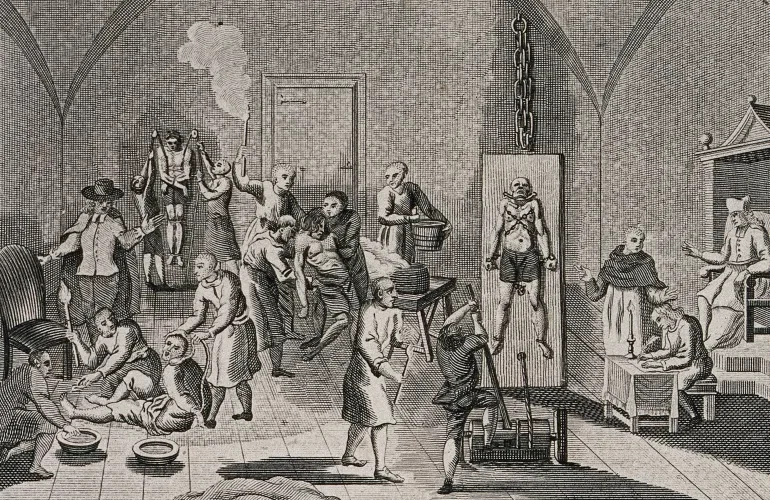The Spanish Inquisition : A Legacy of Religious Persecution and Its Enduring Impact on Human Rights

By: Ibtehal
In European history, the Spanish Inquisition stands as one of the most controversial institutions—not only for its association with torture and oppression, but for its role as an early model of systematic human rights violations carried out in the name of religious purity and state control. Though centuries have passed since its abolition, the psychological, social, and political consequences of the Inquisition remain embedded in collective memory, serving as a stark reminder of what happens when belief is weaponized and humanity is stripped of its dignity.
Origins and Declared Purpose
The Spanish Inquisition was officially established in 1478 by royal decree from Catholic monarchs Ferdinand II and Isabella I, with papal approval from Pope Sixtus IV. Its declared mission was to “protect the Catholic faith” within the Spanish kingdoms, particularly following the forced conversions and expulsions of Jews and Muslims.
However, beneath this religious justification lay clear political and economic motives: consolidating national identity, controlling property, and eliminating potential dissent from non-Catholics.
Mechanisms of Repression and Interrogation
The Inquisition became infamous for its brutal methods of investigation, which included physical and psychological torture, solitary confinement, asset seizure, and public executions—often by burning. Accused individuals were frequently denied knowledge of the charges against them, barred from legal representation, and subjected to secret trials.
Its reach extended beyond Muslims and Jews to include Christians who deviated from official doctrine, such as Protestants and independent thinkers. Historians estimate that over 150,000 people were accused, with thousands executed over the course of several centuries.
Psychological and Social Consequences
The Inquisition left behind a heavy legacy of fear and self-censorship. Citizens lived under constant threat of persecution for their beliefs or even their opinions. This led to:
- The collapse of pluralistic communities: Jews and Muslims were expelled or silenced, erasing centuries of cultural and religious diversity once found in Andalusia.
- Distrust in institutions: The state became a tool of oppression rather than protection, and law was associated with intimidation rather than justice.
- Intellectual decline: Scholars and thinkers were forced into silence or exile, stalling scientific and philosophical progress in Spain for generations.
Impact on Human Rights
The Spanish Inquisition is widely regarded as one of the earliest examples of institutionalized human rights violations. It undermined:
- Freedom of belief: Catholicism was imposed by force, and dissent was criminalized.
- Right to a fair trial: Transparency and legal defense were absent from inquisitorial proceedings.
- Right to life and dignity: Torture and public executions were used as instruments of fear and control.
Many scholars argue that the Inquisition functioned as a form of “religious cleansing,” comparable in its intent—if not its scale—to ethnic purges, with the goal of eliminating ideological diversity.
Transitional Justice and Historical Reckoning
After its final abolition in 1834, Spain gradually began to confront this dark chapter, especially following the end of Franco’s dictatorship in the 20th century. Efforts included:
- Opening archival records of the Inquisition.
- Official recognition of victims.
- Inclusion of the Inquisition in educational curricula.
- Support for interfaith dialogue and cultural reconciliation.
Despite these steps, some communities—particularly Jewish and Muslim descendants—continue to call for deeper acknowledgment and symbolic reparations for the historical trauma inflicted.
Conclusion: When Belief Becomes a Tool of Oppression
The Spanish Inquisition is not merely a dark chapter in Europe’s history; it stands as a lasting warning against turning faith into a tool of oppression and using the law to eliminate the “other” instead of protecting them. At a time when religious and ethnic conflicts are resurging, this experience remains a harsh lesson in the vital importance of safeguarding human rights, regardless of background or identity.
Open-Access References